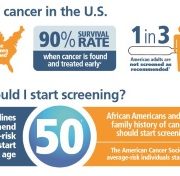Irritable Bowel Syndrome (IBS) Awareness Month: Information and Resources
April is annually designated as #IBSAwarenessMonth, a monthlong effort to focus attention on Irritable Bowel Syndrome (IBS) and the millions of people it affects all over the world. Around 15% of the population suffers from IBS, but many go undiagnosed, dealing with painful, frustrating, and often stigmatized symptoms. Keep reading to learn more about the condition as well as some valuable resources.
What is IBS?
Irritable Bowel Syndrome (IBS) describes a collection of chronic symptoms occurring in the large intestine (colon). It is characterized by bloating, abdominal cramping, and a change in bowel habits. Constipation and/or diarrhea are a part of IBS. No one knows what causes the condition, although it’s more common in women than men.
Symptoms of IBS
- Uncomfortable bloating or distention
- Pain or cramping in the abdominal area
- Diarrhea
- Constipation
- Mucus in the stool
- Flatulence
- Nausea or vomiting
Managing Symptoms of IBS
There’s no “cure” for IBS. Treating the condition requires symptom management: making certain lifestyle and dietary changes based on your specific needs. Here are some ways that IBS can be controlled:
- Limiting foods that trigger IBS symptoms. These may include alcohol, chocolate, carbonated beverages, certain fruits and vegetables, or milk.
- Stress management. IBS can worsen during periods of high-stress or anxiety. In fact, during the pandemic, many report that their symptoms of IBS have considerably worsened. Planning ahead, making lists, meditating, taking time to relax and avoiding stressful situations can prevent aggravation of symptoms.
- Eat more fiber. Getting plenty of fiber in your diet can promote regularity and limit symptoms of IBS.
- Certain medications, such as anti-diarrheal medications and anticholinergic medications.
Life With IBS: Resources and Information
IBS affects many people’s quality of life in subtle but debilitating ways. It can affect your work, travel, relationships, and how you live out each day. In fact, on average, individuals with IBS restrict their activities 73 days out of the year.
If you or a loved one is living with IBS, there are a variety of resources and methodologies available to help you handle daily symptoms that you may have not encountered before.
One such method is known as “belly breathing.” By utilizing the abdomen to expand and contract breath rather than the chest, you can limit symptoms of IBS and other gastroenterological conditions. Belly breathing activates the parasympathetic nervous system, which tells the brain to move back to “rest” mode rather than “fight or flight.” It also improves stomach accommodation and pressure.
If you frequently travel or commute to work, it can be helpful to create an IBS “survival kit” to be of need in unfamiliar settings. This can include a change of clothes, extra bath tissue, medication, something that calms you, and anything else that may be of use.
If you are close with or live with someone with IBS, providing them a supportive and understanding relationship can be hugely beneficial. Read this helpful blog about relationships and IBS by the International Foundation for Gastrointestinal Disorders (IFFGD) to learn more.
Being communicative with your physician is also an important part of managing symptoms of IBS. On average, people wait with their symptoms for over 6 years before seeking help. If you think you may be experiencing IBS, seek medical advice. The IFFGD has compiled a list of “words to know” so you can better-communicate your symptoms.
Why Does IBS Awareness Month Matter?
By participating in #IBSAwarenessMonth, you can help spread awareness, reduce stigma, and promote greater investment in IBS research.
Visit the IFFGD’s #IBSAwarenessMonth homebase for more pertinent information and media resources toolkits. Read personal stories of people who experience IBS here. Visit the American College of Gastroenterology’s helpful resource page here.
The experienced team at Gastroenterology Health Partners is here for you if you are concerned about irritable bowel syndrome (IBS) and/or other gastroenterological medical conditions. For more information or to schedule an appointment at one of our Kentucky or Southern Indiana offices, contact one of our practice locations near you.













